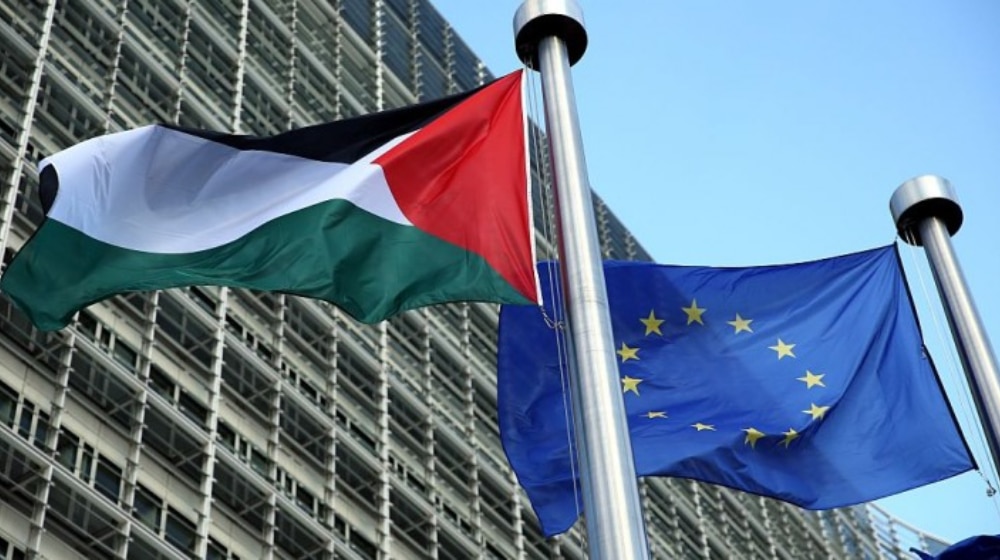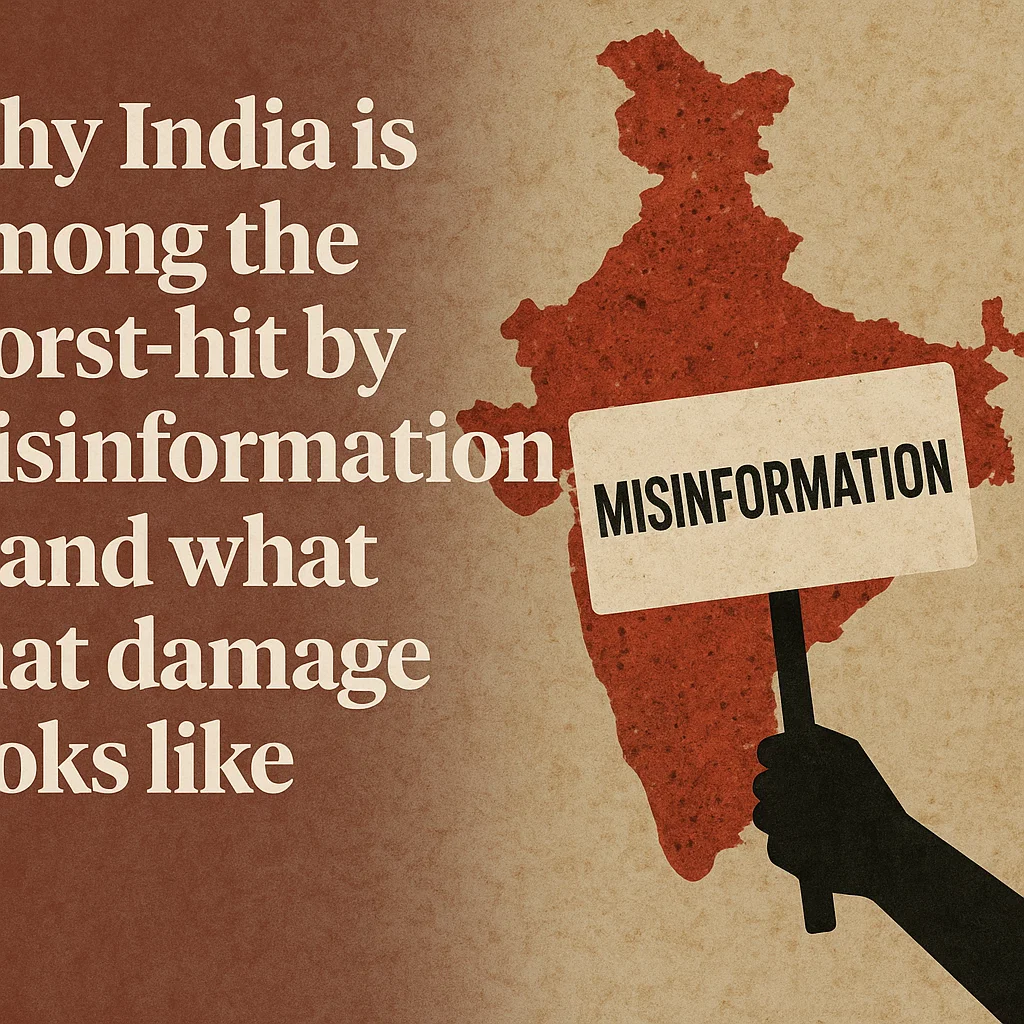A wave of EU decisions marks a turning point: public outrage over Gaza, strategic distrust of Washington after the Trump era, and Europe’s desire for moral and diplomatic autonomy are pushing capitals to diverge from U.S. policy.
This month European capitals took a step that, a decade ago, would have been unthinkable: a wave of formal recognitions of Palestinian statehood and increasingly assertive measures against Israel’s wartime conduct. The move reflects a profound shift — not merely in foreign-policy calculation, but in the moral calculus of electorates, the strategic instincts of leaders, and the balance of power between Washington and Brussels. The result is a new reality in which Europe no longer reflexively follows the United States on the Middle East. Instead, many governments are asserting independent positions that foreground humanitarian law, domestic political concerns, and a growing desire for strategic autonomy.
How the Moment Arrived: Gaza as the Inflection Point
The proximate cause is brutal and plainly visible: the Gaza war and the scale of civilian suffering it has produced. Graphic reporting, indiscriminate urban destruction, and collapsing public services have pushed Western publics and parliaments into a moral uproar. In response, countries such as France, Belgium, Spain, and Ireland — and several smaller EU states — announced recognition of a Palestinian state or took concrete punitive steps this week. These decisions are not purely symbolic; they are the culmination of months of mass protests, political pressure, and a sense among European publics that inaction equals complicity.
This is also a moment of relentless political visibility: footage and testimony from Gaza travel quickly across social media, parliament floors, and television. Leaders who ignore this domestic political convulsion risk electoral backlash. European foreign policy is therefore being shaped not only by geopolitics but by an intense democratic feedback loop.
The Erosion of U.S. Moral Leadership
For decades the United States derived much of its soft power from a simple proposition: America enforces rules because it believes in them. That narrative powered sanctions regimes, legitimised interventions, and rallied allies. When that narrative frays, the costs are not merely reputational — they are strategic.
1) How Moral Authority Breaks Down — the mechanics
- Selective application: When Washington defends the actions of a close ally while condemning the same behavior by others, the distinction is obvious to foreign publics. Consistency — the core of moral authority — vanishes.
- Symbolic amplification: Media, social platforms, and parliamentary debates amplify perceived hypocrisy. Graphic images from conflict zones make abstract legal arguments visceral; symbolic acts (UN vetoes, public congressional defenses) harden impressions.
- Domestic filtering: Democracies filter foreign policy through domestic politics. If U.S. leaders make legal arguments that contradict public sentiment elsewhere, allied publics interpret that as political calculation, not principle.
- Narrative competition: Rival powers (China, Russia, regional actors) exploit the gap: they frame the U.S. as a power that talks rules but acts selectively, offering “principled” alternatives (or at least a politics of non-interference) that appeal to many Global South governments.
2) Political and institutional consequences
- United Nations and multilateral forums: Repeated use of U.S. vetoes to block action against a partner undermines the UN’s claim to impartiality and fuels calls for institutional reform or bypass strategies (coalitions of the willing, regional arrangements).
- European policy divergence: Democratically responsive European governments face domestic pressure to act; when public outrage is high, governments choose symbolic or substantive measures (recognition, sanctions, legal steps) rather than defer to Washington.
- Allied hedging: If allies believe the U.S. picks principles selectively, they hedge — building autonomous capabilities, pursuing independent diplomacy, or courting other great powers for alternatives.
- Global South realignment: Countries that once relied on U.S. normative leadership conclude that alignment with the U.S. brings reputational costs at home; they become more willing to pursue relations with China, Russia, or regional powers who offer transactional benefits without moral lectures.
3) Diplomatic fallout — concrete examples of effects
- Loss of mediator status: A credible broker must be perceived as evenhanded. Perceptions of bias make Washington a less effective mediator in conflicts where its ally is party to the dispute.
- Sanctions credibility erodes: If sanctions are seen as selective, they become a tool of geopolitics rather than a norm-enforcing mechanism; partners may resist joining U.S.-led sanctions coalitions.
- Humanitarian diplomacy handicapped: When the U.S. advocates for humanitarian access or civilian protections in other conflicts, critics point to perceived double standards and reject U.S. moral authority.
4) Feedback loops that accelerate erosion
- Protest → Policy → Isolation: Mass protests in allied countries force governments to take positions that diverge from U.S. policy, which then legitimizes more protests and hardens public opinion.
- Domestic polarization in U.S. → foreign incoherence abroad: As U.S. domestic politics become polarised, allied public opinion loses faith that U.S. policy will be consistent across administrations. That reduces long-term trust.
- Rival narrative entrenchment: Adversaries amplify U.S. inconsistencies to promote alternative orders; the longer the inconsistency persists, the harder it is to reverse perceptions.
5) What restoring moral credibility would require (practical levers)
Restoration is possible but politically costly. Key steps include:
- Policy consistency and transparent principles: Adopt and publicly explain a set of clear, consistent principles (e.g., proportionality, protection of civilians, international humanitarian law) and demonstrate they guide action even when the costs are high.
- Shared burden and co-brokerage with allies: Work collaboratively with EU, Arab, and regional partners on mediation and humanitarian responses so decisions reflect collective, not purely U.S., judgment.
- Tactical recalibration on UN diplomacy: Use diplomacy to avoid reflexive vetoes where conditional alternatives (investigations, temporary measures, joint statements) could preserve legitimacy while protecting core interests.
- Humanitarian first posture: Prioritise credible, large-scale humanitarian relief and let that action lead diplomatic rhetoric — materially addressing suffering helps rebuild trust faster than declarations.
- Domestic engagement: Reconcile domestic political pressures by engaging civic groups, diaspora communities, and Congress to build cross-partisan support for a principled policy that balances ally security with international norms.
6) Risks and limits of recovery
- Political lock-in: Domestic constituencies (lobbies, voting blocs) can limit what is politically feasible in the short term; reform takes time and consistent leadership.
- Perception lag: Even after policy shifts, reputational repair can take years; adversaries will continue to highlight past inconsistencies.
- Competing priorities: Strategic competition with great powers means the U.S. will have to balance moral leadership with hard security interests — reconciliation is never costless.
Moral authority is not a cosmetic asset; it is strategic capital. When Washington’s actions are perceived to place allied survival or domestic politics above universal principles, that capital is spent—and replenishing it requires choices that may appear domestically costly. Europe’s recent divergence is a global feedback signal: allies and publics will only accept U.S. leadership if it is seen as principled, predictable, and shared. If the U.S. cannot reconcile security partnerships with consistent adherence to international norms, it risks ceding the moral high ground — and with it, significant strategic leverage.
The Trump Factor: Weakening Transatlantic Automaticity
A second structural driver is political uncertainty in Washington. The Trump years — followed by political volatility in the U.S. more generally — left European policymakers unsettled about reliable American leadership. Questions about whether U.S. commitments are permanent, and whether Washington’s policy priorities can change dramatically with the next administration, have prompted European capitals to hedge. If the U.S. will be unpredictable on trade, defense spending, and global diplomacy, Brussels and national capitals feel compelled to develop autonomous policies to preserve their interests and reputations. The risk of a future U.S. administration reversing course or turning inward crystallizes Europe’s appetite for a more independent line on the Middle East.
Domestic Politics: Protest, Demographics, and the Electoral Imperative
Europe’s domestic politics matter. Large and politically active Muslim and left-leaning constituencies in countries such as France, Spain, Belgium, and the U.K. have been crucial drivers of the recent policy pivot. Generational change also plays a role: younger Europeans tend to be more attuned to humanitarian narratives and less deferential to historical Western alignments. For many European leaders, staying aligned with Washington on Israel while ignoring mass domestic sentiment would be politically risky. The upshot: democratic politics is forcing foreign policy to reflect public conscience more closely than in previous decades.
Strategic Autonomy, Not Strategic Divorce
This is not about Europe “ditching” the United States in a wholesale manner. NATO commitments remain, and shared security concerns — especially the war in Ukraine and the need to deter Russia — still bind transatlantic cooperation. But Europe’s move on Palestine signals a push toward strategic autonomy: preserving core security ties with Washington while asserting independent policy choices where EU governments judge their interests or values diverge from U.S. positions. In short: Europe will not cede its moral credibility or domestic stability for transatlantic unity on every issue.
The Global South and the Credibility Test
Another dimension: the Global South is watching. Many governments in Africa, Asia, and Latin America view the Palestinian question as a test of whether the West is consistent about sovereignty and human rights. By acting, European governments are attempting to reclaim normative leadership in those regions — signaling to emerging partners that Europe’s diplomacy is not simply an adjunct of U.S. policy but rooted in international law. In the calculus of some European policymakers, that credibility is worth short-term friction with Washington.
Geopolitical Implications: Alliance Friction and Diplomatic Ripples
What happens next? Expect a mix of outcomes:
• Tactical friction with Washington. Public EU recognition of Palestine and punishments or embargoes aimed at Israel will create diplomatic stress. The U.S. may condemn some steps, leading to high-level disagreements.
• Pressure on Israel. European actions — arms restrictions, suspension of trade privileges with Israeli settlements, or diplomatic isolation — increase pressure on Jerusalem and raise the cost of its wartime policies.
• Opportunities for mediation. Ironically, if Europe can combine moral credibility with constructive diplomacy (backed by Arab states), it could become the necessary broker for a postwar settlement — a role the U.S. finds harder to play without profound domestic political shifts.
• Multipolar acceleration. As Europe asserts more autonomy, states like China, Russia, Türkiye, and Gulf actors will exploit the opening to deepen ties with individual European countries, creating a more complex chessboard of influence.
Is This a Permanent Realignment? Not Necessarily — But It Is Durable
Two factors will determine whether the current divergence endures: the course of the Gaza war and political change in Washington. A rapid de-escalation and a credible peace process brokered by the U.S. could restore transatlantic unity. Conversely, prolonged conflict with high civilian tolls, or a hardening of Israel’s policies, will cement Europe’s independent turn.
Similarly, a durable change in U.S. domestic politics — one that produces a Washington willing to rebalance support for Israel with a serious diplomatic push on Palestinian statehood and humanitarian relief — would reduce divergence. But absent such changes, Europe’s behavior reflects more than temporary protest: it is a structural reaction to shifting domestic politics, declining unconditional trust in American leadership, and a renewed European ambition to align policy with public values.
What Europe Gains — and What It Risks
1. Restored moral credibility (short → medium term)
How it operates: Public recognition of Palestinian statehood and more forceful diplomatic stances signal that Europe applies international law and human-rights norms even when doing so angers a powerful ally. This restores a consistency that matters in normative diplomacy.
Effects:
- Greater standing in international debates on humanitarian law and conflict resolution.
- Increased ability to convene coalitions (UN, Council of Europe, OIC contacts) on post-conflict reconstruction and accountability.
Recommendation: Couple recognition with concrete steps (humanitarian corridors, funding for relief, independent fact-finding missions) to convert symbolism into practical leverage.
2. Stronger ties with the Global South (medium term)
How it operates: Many countries in Africa, Asia, and Latin America perceive the Palestine question as a litmus test for Western fairness. Europe’s independent stance can be marketed as a return to principled multilateralism.
Effects:
- Opens diplomatic space for Europe to negotiate trade, climate, and development deals on more favorable terms.
- Reduces the attractiveness of competing narratives from China and Russia that exploit Western inconsistency.
Recommendation: Follow recognition with targeted diplomacy: debt relief packages, development partnerships, and climate finance offerings to turn goodwill into durable partnerships.
3. Domestic political legitimacy and social cohesion (short term)
How it operates: Governments that respond to major public movements (large protests, parliamentary pressure) avoid the perception of being aloof elites; they reinforce the democratic feedback loop.
Effects:
- Strengthens government legitimacy domestically and reduces protest pressure.
- Signals to EU electorates that leaders listen and act on human-rights issues.
Recommendation: Transparently communicate the policy rationale to domestic audiences, emphasizing both moral and strategic reasoning to prevent polarization.
4. New diplomatic leverage in a post-conflict order (long term)
How it operates: If Europe is perceived as a principled actor and gains legitimacy with Arab states and Palestinians, it can shape reconstruction, legal frameworks, and long-term settlement terms.
Effects:
- Access to lead donor conferences, infrastructure rebuilding contracts, and institutional reform programs — all sources of both influence and economic opportunity.
- The capacity to design conditional incentives that encourage Israeli compliance with international norms.
Recommendation: Build coalitions with Arab partners and the U.S. (where possible) to ensure European leverage translates into enforceable, multilateral mechanisms rather than unilateral diktats.
What Europe Risks — and How Those Risks Materialise
1. Tactical diplomatic friction with Washington (immediate → short term)
Mechanism: Divergent public positions and concrete measures (recognition, sanctions, arms restrictions) create bilateral tensions — strained summits, delayed cooperation on other dossiers, or reduced goodwill in crisis talks.
Effect: Possible short-term setbacks on Ukraine, Iran negotiations, or security cooperation if trust erodes.
Mitigation: Maintain open channels with Washington, explain motives in advance, coordinate where possible (e.g., humanitarian corridors), and compartmentalise disagreements from core NATO security business.
2. Possible limits on privileged intelligence-sharing (medium term)
Mechanism: Intelligence partnerships rest on trust and reciprocity. If Washington judges certain European actions counterproductive to U.S. policy objectives, it may tighten access to sensitive streams or impose caveats.
Effect: Reduced operational effectiveness in joint counterterrorism, counter-proliferation, or expeditionary missions.
Mitigation: Europe should clarify that divergence is policy-specific, not systemic; reassure partners on continued operational cooperation; and accelerate development of autonomous intelligence capacities and secure EU-level fusion centers.
3. Economic frictions with pro-Israel constituencies (short → medium term)
Mechanism: Business and philanthropic networks tied to Israel (tech partnerships, joint ventures, university research links) may lobby against punitive measures; sanctions could disrupt supply chains in niche sectors.
Effect: Domestic political pushback, legal challenges, and some loss of trade/investment in targeted areas.
Mitigation: Design narrowly targeted measures (e.g., settlement-specific sanctions) rather than blanket embargoes; consult industry to limit unintended spillovers and provide transitional relief where necessary.
4. Risk of EU fragmentation (medium term)
Mechanism: EU member states have differing historical ties, domestic politics, and economic interests. Unilateral national recognitions or sanctions risk splitting EU cohesion if Germany, Italy, or other large members resist severe steps.
Effect: Weakened EU negotiating leverage, messy multilateral postures, and opportunities for external actors to exploit division.
Mitigation: Use the EU’s institutional framework to seek common positions; prefer graduated, consensus-building measures; and employ qualified majority mechanisms only when internal consensus cannot be reached after genuine consultations.
5. Diplomatic weaponisation by rivals (short → medium term)
Mechanism: China and Russia will amplify divisions, courting disaffected European partners with investments and anti-Western narratives, while portraying themselves as more “neutral” partners for the Global South.
Effect: Strategic competition in Africa, the Middle East, and the Balkans intensifies, complicating Europe’s external agenda.
Mitigation: Combine recognition with robust economic and diplomatic offers to vulnerable partners, and diversify supply/security ties to reduce vulnerability to external coercion.
Balancing Gains and Risks — A Practical Roadmap for Europe
Mobilise the Global South with offers: Pair normative leadership with development finance, infrastructure deals, and debt relief to convert goodwill into durable partnerships.
Sequence action with capability: Link recognition and moral gestures to concrete diplomatic tools (aid, mediation platforms, reconstruction planning). Symbolism without follow-through weakens leverage.
Coordinate behind the scenes with Washington: Advance notice, private diplomacy, and joint humanitarian measures can keep NATO and core security ties intact while allowing public divergence on moral grounds.
Targeted measures, not total break: Prefer sanctions or restrictions narrowly focused on settlements, military supply lines, or individual accountability, reducing collateral economic damage and easing legal defensibility.
Invest in EU strategic autonomy where it matters: Strengthen EU intelligence fusion, crisis rapid response, and diplomatic networks to avoid overreliance on the U.S. for contingency management.
Bottom Line: A New Balance of Transatlantic Power
Europe’s recognition of Palestine and its willingness to diverge from the U.S. is not merely a response to one brutal conflict. It is a signal that after years of strategic and political turbulence, European governments are ready to trust their publics, principles, and institutions — even when that produces dissonance with Washington. For the transatlantic relationship, the moment calls for serious diplomacy: the United States must understand the domestic and moral constraints driving European choices, and Europe must appreciate the strategic calculations that bind Washington to Israel.
Europe’s turn is strategic as well as moral. The gains are real — restored credibility, expanded diplomatic space, and domestic legitimacy — but they are contingent: only if European capitals couple principle with capability will those gains be durable. Otherwise, symbolic wins could produce fragmented policy, lost leverage, and a shorter window to shape the post-conflict settlement. The best path blends moral clarity with pragmatic coalition-building: assertive yet patient, principled yet cooperative.
If both sides can reframe the debate — moving from a binary of “with us or against us” to a coordinated effort that protects Israel’s security while urgently addressing Palestinian political rights and humanitarian needs — a path to restored cooperation exists. If they fail to bridge the divide, the result will be a more fragmented Western foreign policy at a time when unity matters most.








